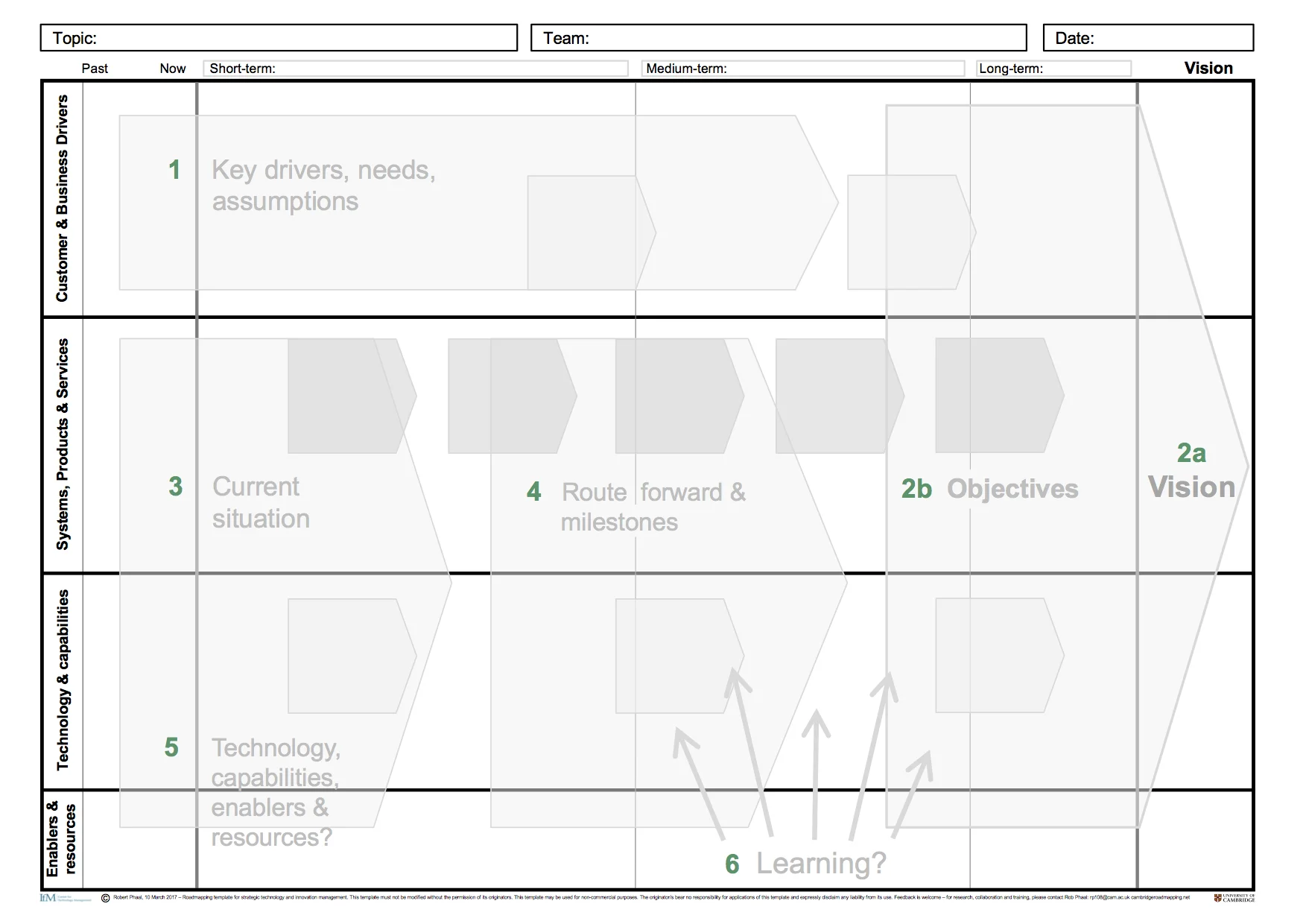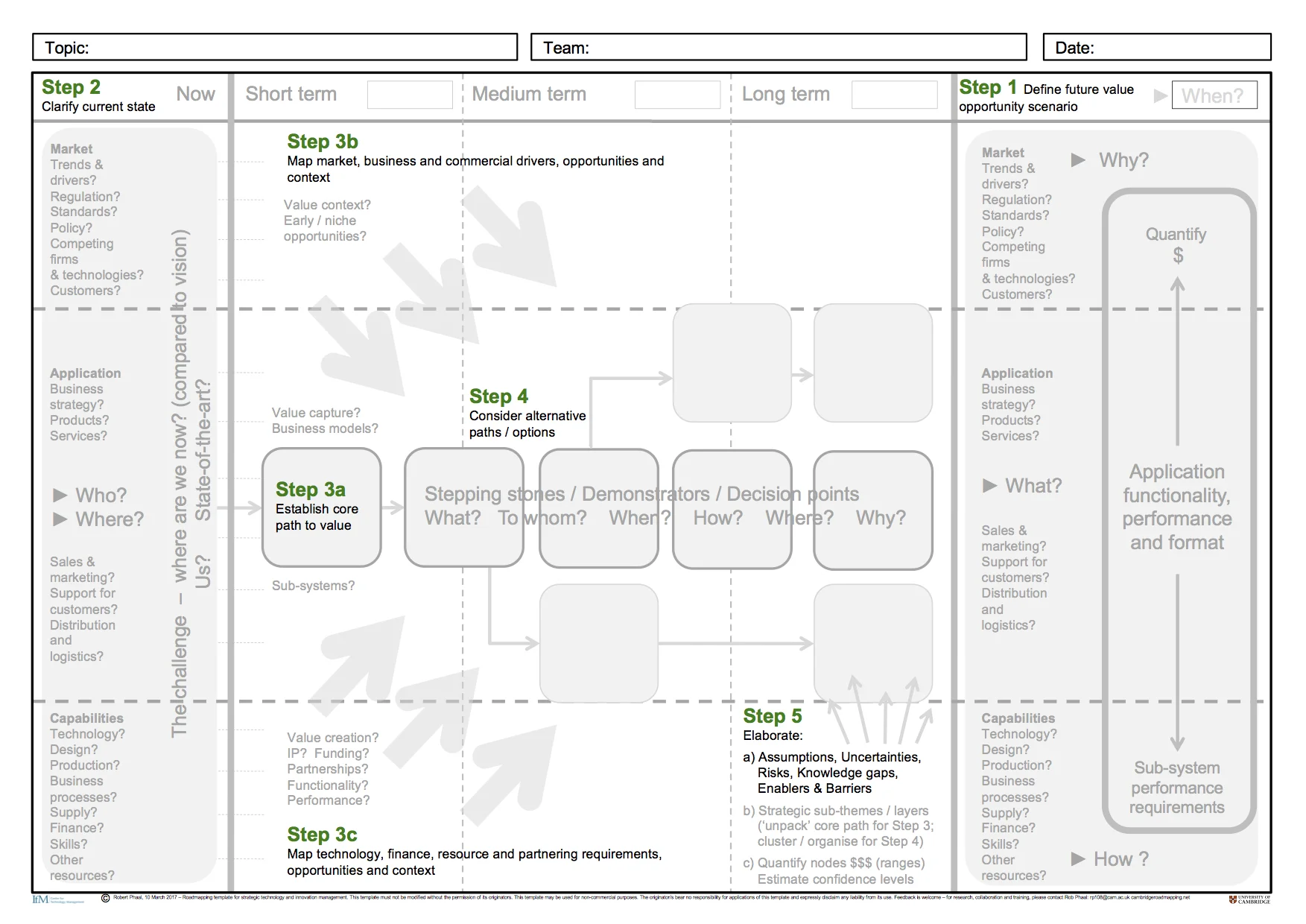Templates
A well-designed roadmapping workshop template can have a significant impact on process efficiency and effectiveness. A 2016 working paper on 'self-facilitating' templates describes an 'experiment' to test the performance of roadmapping templates for early-stage technological innovation in collaboration with a company in Stockholm.
Three roadmapping workshop templates from the working paper are released here - Fig. 2, 3 and 8. A form for assessing template utility is also provided - feedback on template use is welcome - please email Rob Phaal.
Templates may be used freely without alteration for non-commercial purposes (i.e. not for paid consulting). Internal application by firms within their own organisation is not considered to be commercial in nature. To discuss commercial applications, licensing or template design, please email Rob Phaal.
Designing templates to include non-prescriptive process prompts improves efficiency and effectiveness
Roadmapping workshop templates: 'classic', 'classic reloaded' and 'new' (Phaal et al., 2016)
Download 'classic' template pdf (Fig. 2 of working paper)
Download 'classic reloaded' template pdf (Fig. 6 of working paper)
Download 'new' template pdf (Fig. 3 of working paper)
Feedback form
Download template feedback form pdf for assessing utility (Fig. 5 and Table 1 of working paper)
More templates
Research on toolkits and templates continues... the flexible nature of roadmaps facilitates integration with other tools and frameworks, such as business models, risk management, finance and evaluation, workforce planning, intellectual property, value & supply chains and sustainability. Many frameworks in these domains are rather static, and combining them with roadmapping ensures the time dimension is explicit, supporting strategy - e.g. business model transformation. Various experimental templates are available to download.
For even more templates and perspectives on strategic technology and innovation management tools and toolkits see the website of my colleague Dr Clive Kerr.
For more information, follow these links for perspectives on:
Templates are key to deploying process, defined by the sequence of steps that flow across the template blocks. The templates presented here are fairly integral in their design, but the process steps can be disaggregated into separate blocks, and implemented in sequential stages. These can be expanded in scope to include other tools and frameworks, creating a toolkit, integrated via process, data flow and roadmap structure. They can be implemented in physical workshops with paper and post-it notes, or online using digital whiteboards or via web forms in disaggregated process blocks. This user experience (UX) design website provides a useful perspective on templates.
If you have any queries regarding use of these templates, research, training, collaboration or other support please contact me at rob.phaal@eng.cam.ac.uk.





